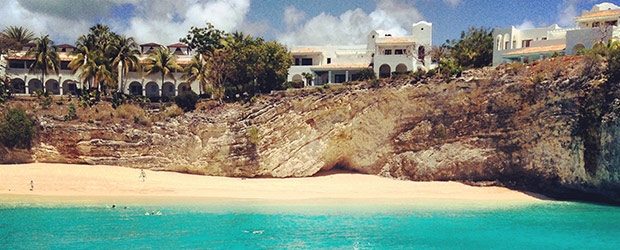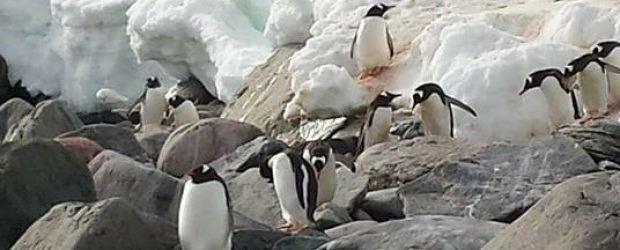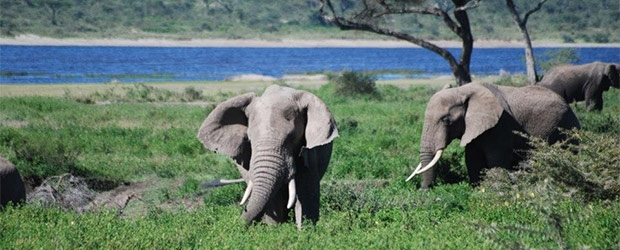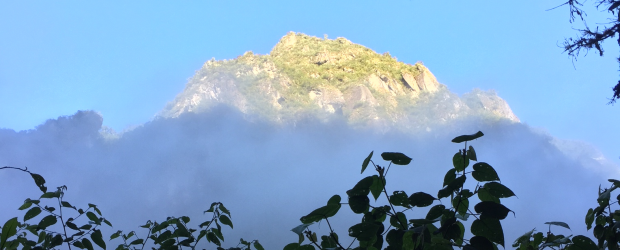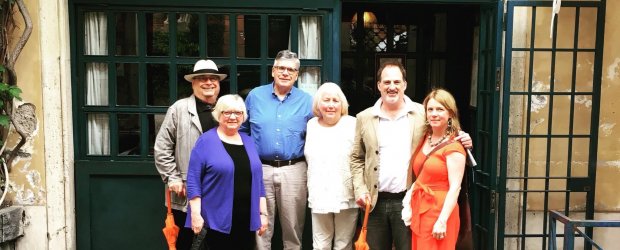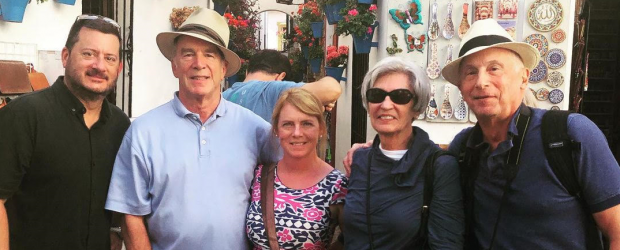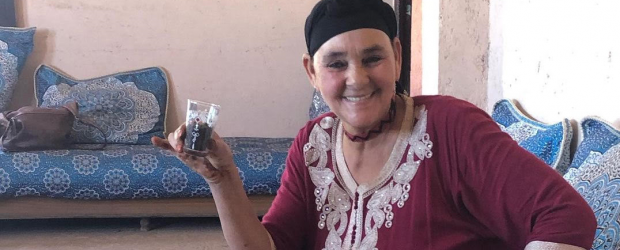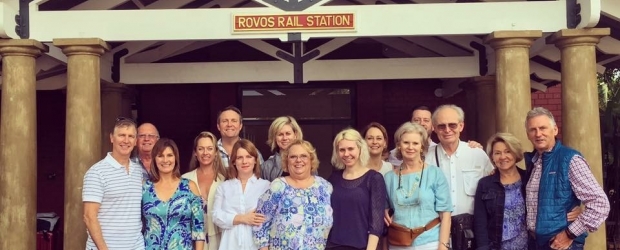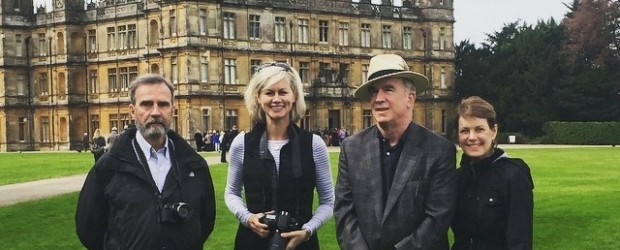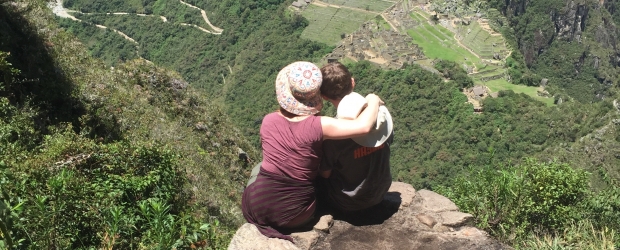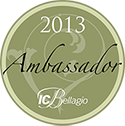A View from South Africa: 2007
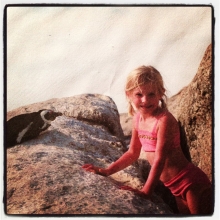
I travel to experience the world first hand. To see with my own two eyes. To debunk myths and propoganda. Okay, there are other reasons. Tasty food. A charming hotel. Being thrown together with my family without the burden of fixing meals and doing laundry. But the fact is, as I learned slowly growing up in a conservative home in a Red State, the view from Evansville is not definitive. We are just one, small point on the map, and the United States is but a mass on that same map. My first lesson came this way.
In November of 1989, in my third year of college, Ronald Reagan ended the Cold War by single-handedly bringing down the Berlin Wall. The world was euphoric, especially the people of Berlin, who could be seen dancing in the the streets. "Mr. Gorbachev, tear down this wall." Awesome.
The following summer, I sold my car and went backpacking in Europe. My first stop was Berlin. At twenty-one, I couldn't wait to join the party that in America we were assured was still going on. I never found it. What I did find was the people of East Berlin, derogatively labeled "ossies" by my West Berlin roommates, out of jobs because they couldn't catch on to the work ethics demanded by capitalism. Some had lost their homes, as the westerners reclaimed property in the east with fifty year old deeds. And the people of the once isolated island, West Berlin, bemoaned the loss of the special stipend they had received for living surrounded by communists. The euphoria I kept asking about had lasted but a few days, according to the Germans. It was gone, and change was hard.
In the spring of 2007, my family traveled to South Africa, a destination that some of our friends questioned. Why? Nineteen hours on a plane with three children? Was it safe? But we knew that unlike most of the Dark Continent, South Africa was a developed, English-speaking country, with little disease and lovely resorts and safari lodges. It was also the country I had studied in high school, in the eighties, when Apartheid was alive and well and Nelson Mandela was still imprisoned on Robben Island. Back then, Rhodesia had already become Zimbabwe, with Robert Mugabe as its first black leader. In 2007, after 27 years, Mugabe held on to power through fear and corruption. The whites were gone and the blacks starving. What about South Africa? With the help of US sanctions and then-hero Mugabe, Apartheid ended in South Africa in 1994. Nelson Mandela was freed and elected president, leading his country into a time of unprecedented healing and forgiveness. The sanctions ended, the economy recovered, the Truth and Reconciliation hearings brought a unique form of justice. The whites stayed and the blacks thrived. An African Utopia. A Garden of Eden. Well, maybe.
On the flight to Johannesburg, I sat next to an African-American man named Tim. Tim was flying to Jo'burg to continue negotiations with a South African oil company to bring fuel to Zimbabwe, where he would then be for the next month. This was not his first trip and Tim confessed that sometimes he struggled for the people's trust in black Zimbabwe, because there, with his coffee-hued skin, he was considered "coloured," not black, despite his dreadlocks. "Find out for me," Tim said. "Find out what the white South Africans really feel about the fall of Apartheid. They will tell you things they would never say to me."
Of course, this was true, because I am one of them. Listen to this little story. In the 1600's, the Dutch East India trading company settled the southern tip of South Africa, the Cape of Good Hope, as it was a logical stopping place on the way to the spices of Ceylon and India. As their settlements grew, they pushed back the native populations, keeping the most fertile land for themselves and discounting the native arts, religion, and tribal structure. And this is exactly what a branch of my European ancestors were doing at the same time and in the same way, on the shores of America. Also in the 1600's, another branch of my family was fleeing France. The DePuis were Hugenots, and escaped to America for religious freedom. They came to Virginia. Other French Hugenots made their way to South Africa.
The natives in South Africa did not succomb to disease and murder in the vast numbers seen with the Native Americans. In fact, the black population retained an 80% majority. By 1948, when Apartheid law was officially established, they were being pushed and crammed into smaller and smaller and less and less desirable locations. Apartheid means "separate," and our hosts in Johannesburg claimed that was all it meant in South Africa. Not quite. Separate, and unequal, like a segregated school in the Old South. And, increasingly dangerous for the blacks to challenge. Most white South Africans felt entitled to the land, to the country, to their way of life. They didn't want change, and they were willing to fight to keep the status quo. When the African National Congress militarized and the blacks started fighting back, it was a war, and the whites lost. Ah, the parallel ends. I am still living the American "way of life." And the white South Africans? Wait a minute, they seem to have maintained their way of life as well. Our hosts in Johannesburg still live on their lovely, gated family estate. They are enjoying the fruits of their past labor, retired now and traveling the world. What happened?
When Nelson Mandela came to power, he stated that it would take all South Africans to make the country strong and sound. That all injuries of the past must be forgiven now and not taken forward into the next generations. He recognized that the white South Africans were the basis of the economy, and that it would take years for many of the blacks to cycle out of the culture of poverty and subjugation which had been their lot, and be able to benefit themselves and their country. Did Mandela look at Berlin and Russia to see the slow, painful process of change? Did he look at India and Pakistan to see how two groups can work to destroy each other? Did he look at Zimbabwe when he mirrored the US constitution and gave term limits to the South African presidency? Yes, yes and yes. And the fears of the white South Africans, that the blacks would retaliate for years of terror and murder, did not come to pass.
As Americans, and as citizens of the world, we must examine South Africa, because even with its poor, black townships and its struggle to effectively combat HIV, this country is, to me, a kind of Utopia. It is a place where fear and differences were put aside daily for the common good, for the growth and flourishing of a country that has room for all its citizens. So to Tim, what do the white South Africans really feel about the fall of Apartheid? They are humbled, however begrudginly, because, by God, they were forgiven. Here is a post card from the Cape of Good Hope, Boulder Beach. And elderly white woman sits in her beach hut, the only remaining hut on what had been private property. Penguins arrived eighteen years ago, and the beach became a public park. Most mornings, someone knocks on the door of the big house up on the cliffs, and when the woman answers, they say: Your grandchildren are here. Some of these children are white. Some are black. Rarely are they her actual grandchildren. But as they approach her hut on tho sunny day, she smiles and hands them their floaties and sand pails. Sometimes a snack. It's different now, she concedes, than when she raised her own children here. But, she says, I couldn't keep the penguins to myself, now could I?
Back here in the Red State of Indiana, in the town of Evansville, where even East and Westsiders nurse their animosities, we might practice laying down what we think we know, about ourselves and others. We might try being honest about our conditioned prejudices so that we might effectively work to put them aside. We might try staying open to the possibilities of goodness in our enemies, despite our fears of personal pain. Remember the solidarity of all Americans after 911, the grace we gave to everyone we met? Imagine if Earth was actually attacked by some alien army. How long would it take for every single country on this globe to become one unit, one citizenship? Do we have to be threatened to unite? The view from South Africa is this: that country recoginzed it was threatened, internally, through prejudice, hate and fear, and the people took that incredible leap of faith to say, We are one. Together we will survive, even flourish. Apart, we will die. Isn't this a micrcosm of our world? The truth is, euphoria probably never was the goal...that fleeting feeling when Saddam Hussein's statue crashed to the ground. But peace, now that is worth pursuing. It will take plenty of courage and expanded view.
